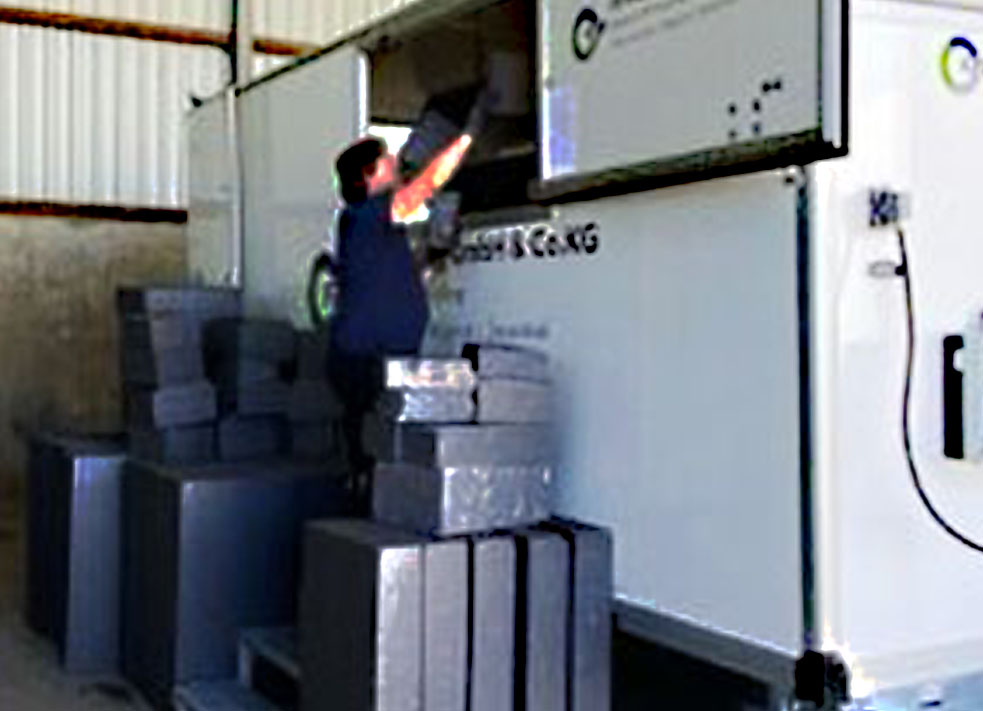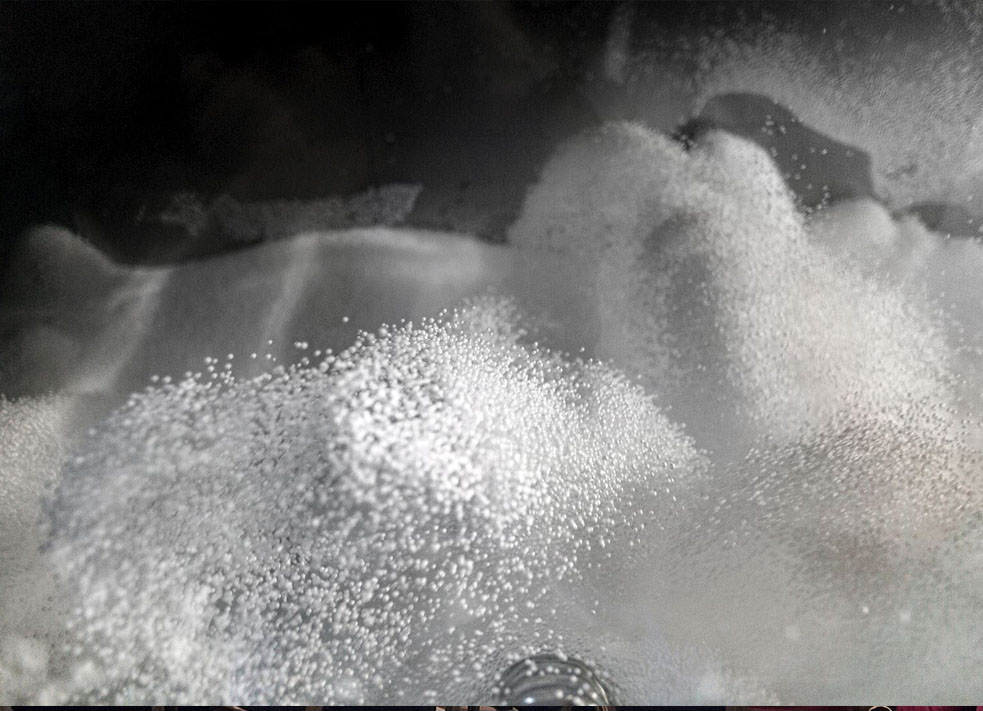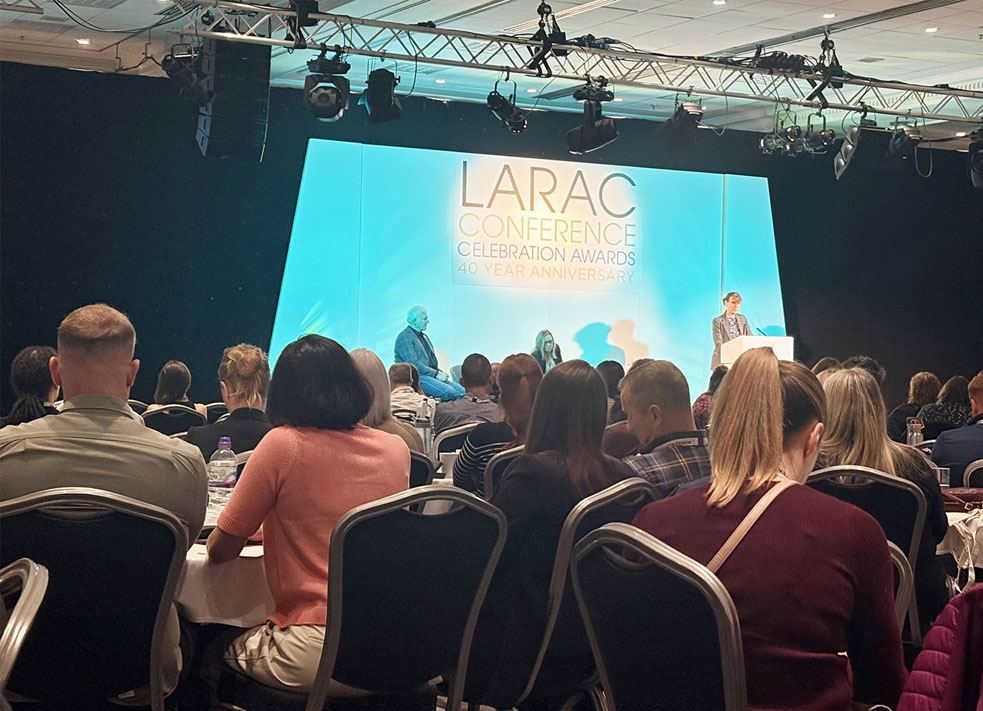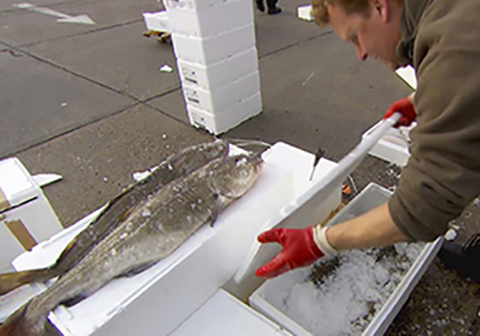BPF EPS Group visit Site Zero in Motala, Sweden, the world’s most advanced plastic sorting facility that showcased cutting-edge innovations that are driving the circularity of EPS recycling in Europe.
In a significant endeavour to enhance the recycling capabilities of expanded polystyrene (EPS) and other plastics, industry representatives from the EPS sector convened in Motala to explore the state-of-the-art Site Zero facility. This visit, organised by IKEM (Sweden) and EPS-Branchen (Denmark), provided an in-depth examination of the world’s largest and most advanced sorting facility for plastic packaging. It also offered a valuable opportunity for participants to share insights and discuss the current state and future incentives for EPS recycling across Europe.
Site Zero, managed by Swedish Plastic Recycling (Svensk Plaståtervinning), stands at the forefront of technological innovation in plastic recycling. This 60,000m² sorting centre boasts an annual capacity to process 200,000 tonnes of plastic, supported by cutting-edge technology that includes 60 Near Infrared (NIR) sensors. These sensors are adept at recognising plastics by their unique chemical structures, enabling the facility to sort twelve different types of plastics, including EPS and XPS.

Therese Ceberblom
Therese Cederblom, Sales Manager of Swedish Plastic Recycling, led the facility tour, emphasising its advanced capabilities. “With the ability to sort 1,000 packages per second and handle complex multilayer packaging, Site Zero sets a new industry standard,” she explained. The facility’s sophisticated sorting lines, particularly those for laminated plastics, reflect its commitment to addressing the complexities of modern plastic waste management.
Therese also elaborated on the facility’s operational milestones: “Established by the Plastic and Packaging industry in 2018, the first sorting line was launched in 2019. Today, Site Zero employs approximately 100 individuals and continues to evolve in response to industry needs.” She also shared the recent implementation of home-based plastic waste collection in Sweden, which began on 1 January 2024, following a new regulation by the Swedish government aimed at increasing the collection rate of packaging from households.

EPS containers at Site Zero
EPS, a vital material with applications in both the packaging and insulation sectors, is integral to Site Zero’s operations. Rickard Jansson, Development Engineer at Swedish Plastic Recycling, underscored the material’s advantages: “EPS is a raw material from the beginning. EPS packaging is generally easy to handle because it is made from a single EPS monostructure.” The EPS at Site Zero is collected from households and is exclusively from packaging. However, after the sorting and recycling process, the EPS packaging fraction can be redirected to the insulation sector.
This facility’s ability to sort and process EPS efficiently is particularly relevant as the European Union aims to meet its 2030 objectives under the Packaging and Packaging Waste Regulation (PWWR). These objectives include achieving 100% recyclable packaging, a 55% recycling rate, and significantly using recycled content in plastic packaging.
At present, EPS and XPS, sorted together in Motala, constitute a notable fraction of Site Zero’s input, with EPS/XPS purity levels reaching 95.57% as of May 2023. This high degree of purity is crucial for meeting the EU’s stringent recycling standards and reducing the environmental impact of plastic waste.
Mattias Philipsson, CEO of Swedish Plastic Recycling, recently commented on the facility’s broader impact, “With Site Zero, we have set a new benchmark for plastic recycling that the rest of Europe needs to follow. This initiative is essential for reducing emissions from incineration and decreasing the dependency on primary raw materials and focus on high recycling by extensive sorting to enable Circular economy for Plastic Packaging.”

Sorted EPS and other plastics at the end of the lines
Following the visit to Site Zero, attendees engaged in an extensive programme focused on EPS recycling. A key highlight was the presentation of the Créa-Styr initiative by Quentin Blot of the French Packaging Association ELIPSO. In collaboration with EUMEPS, this initiative aims to advance the recycling of EPS across Europe by developing new recycling techniques and increasing the recycled content in EPS packaging.
EPS and XPS are integral components of household, industrial, and commercial packaging in France due to their unique mechanical and thermal properties. These materials are crucial for extending the shelf life of food products, protecting fragile items, and maintaining controlled temperatures for pharmaceuticals. Notably, EPS packaging with a lightweight structure, offers significant advantages in terms of low CO2 emissions and material efficiency.

Liv Olsson and Vincent Collard making a presentation
Quentin Blot of the French association ELIPSO reminded the attendees that “the Créa-Styr initiative focuses on two main objectives: implementing commitments from the PS Charter for household EPS and XPS packaging and enhancing the collection and recycling of industrial and commercial EPS packaging.”
Stakeholders in this initiative, including producers, packaging manufacturers, and recyclers, aim to achieve significant milestones. These include improving collection and sorting processes, increasing recycling rates, and ensuring the sustainability of the recycling sector.
Moreover, Quentin highlighted the initiative’s goals: “We aim to achieve 100% collection and recycling of EPS packaging in France, in line with the AGEC law.”

Site Zero stands at the forefront of technological innovation in plastic recycling
The afternoon session featured detailed discussions on current recycling practices in France and Sweden, with valuable contributions from Vincent Collard of CITEO, a mission-driven company established by consumer goods and retail sector firms to mitigate the environmental impact of their packaging and paper through reduction, reuse, sorting, and recycling solutions. Liv Olsson, Sustainability Specialist at BEWI RAW and an active member of EUMEPS, also shared insights, along with Henrik Oxfall of IKEM, who co-organised this tour with Chresten Heide-Anderson from the Danish EPS association, EPS-branchen. These discussions highlighted the critical importance of continuous innovation and collaboration in meeting the EU’s ambitious recycling targets.
Angela Fredericks, Special Advisor EPS and Innovation at the British Plastics Federation “It was a fantastic experience to participate in the tour of Site Zero and see how investments in sorting facilities and innovation have contributed to the circularity of EPS in Europe. The site itself was truly impressive and a benchmark of what can be achieved with the right drivers in place. In the UK we hope to drive investments in collection, sorting and recycling and drive forward the circularity of EPS.”
The event brought together a diverse group of industry professionals committed to advancing EPS recycling including:
The collective insights and discussions from this visit demonstrated pioneering sustainable practices within the EPS industry, fostering innovation, and advancing the circular economy.

Site Zero driving EPS Circularity - Site Visit



































